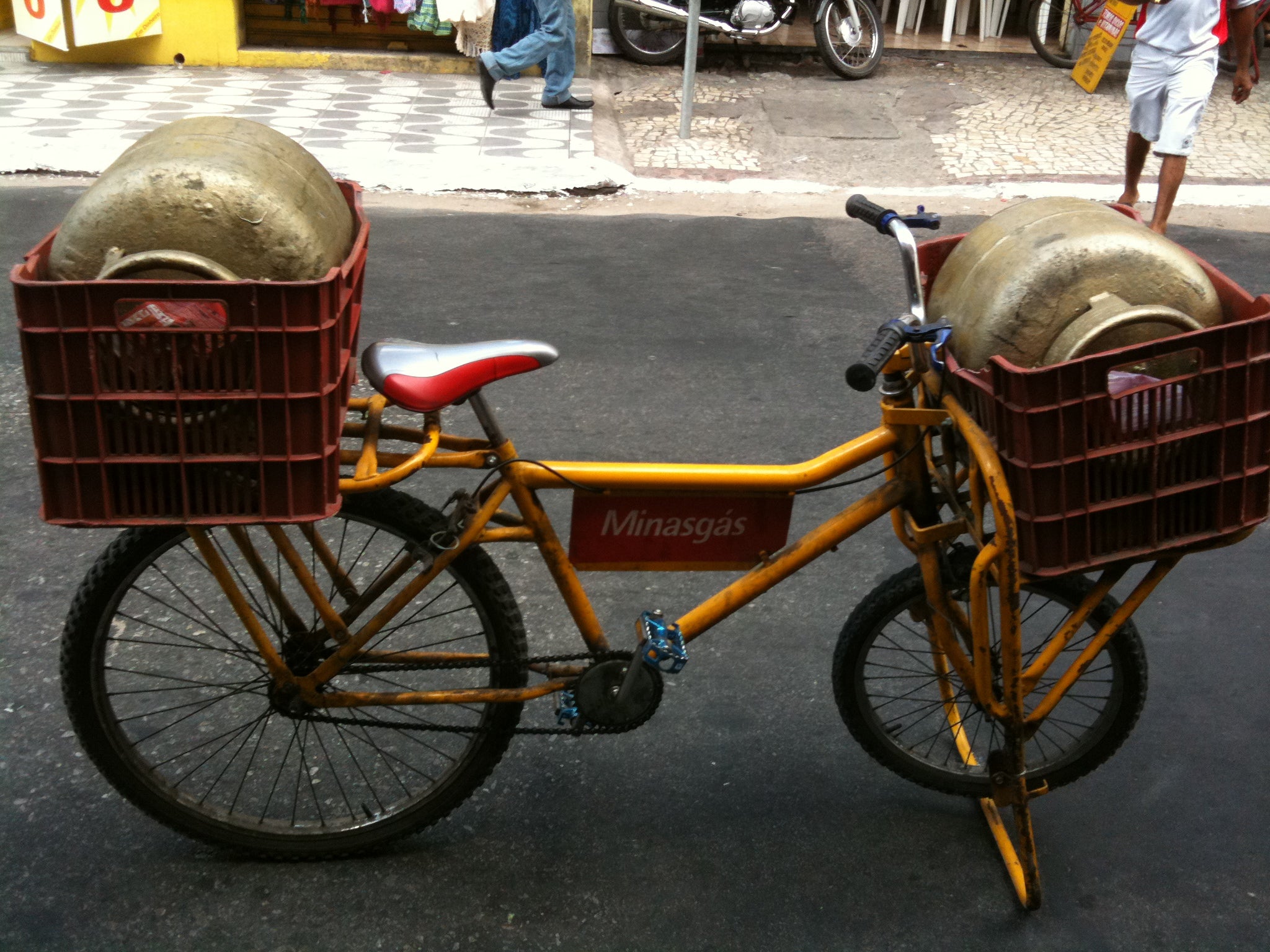A Visual History of Cargo Bikes
What began as a utilitarian business tool has now become the symbol of a socio-economic revolution. From 1877 to present day, "working" bicycles have evolved to fit the interests of society. In this post, we will explore the designs and applications of cargo and freight bikes, using visual resources.
The Beginning
In 1877, John Kemp Starley made a safety bicycle commercially available for the first time. A safety bicycle is a bicycle with two wheels nearly the same size, pneumatic tires, and a chain drive. The safety bicycle put riders closer to the ground than a Penny Farthing, making two-wheeled travel much less dangerous. We can attribute the basic "diamond" and "step-through" frame shapes of today to the original safety bicycle.By the 1880's, the safety bicycle had become a widely accepted alternative to the Penny Farthing. In 1882, The Overman Wheel Company started manufacturing safety bicycles in the United States. The safety bicycle could be constructed with smaller wheels and was more efficient to pedal, cyclists could now carry loads. Notice how this example has been modified to carry a load on the front.

From The Collection of The Coventry Transport Museum
The Rise of The Cargo Bike
By the 1930s and 40s, the cargo bike had risen to peak relevancy. The delivery bike, butcher bike and deli bike, were all common symbols of the working class. Many companies were producing cargo bikes, most notably, a style of bicycle called a Long John. A Long John is characterized by any long wheelbase freight bike where the load is carried in front of the rider, often with a linkage steering system.

From BetterBikes.Dk History of The Cargo Bike
The Long John was relatively easy to steer, bomb-proof, and narrow enough to navigate through dense inner-Copenhagen. Here we see it in daily use and in a delivery-boy race. Annual cargo bike races were held in Copenhagen until the beginning of the decline of cargo bikes, 1960. 





Race photos from The Collection of Mikael Coville-Andersen
Also commonly seen during the work week were 'Bakfiets', literally 'box bikes'. These bikes had a shorter wheelbase, three wheels, and were the delivery vehicle of choice for milk men and the mail service. The term "Bakfiet" is still used today to describe cargo bikes with a large box on the front. 


The Decline
By the 1960s, the American pickup truck ushered in a new era of delivery vehicles. Cargo bicycles were parked outside of businesses to represent a commitment to "the old way of doing things", small town craftsmanship. By the 1980s, one manufacturer was still producing cargo bikes, making less than 100 per year. By this time, the car was king and bicycles had officially been seen as an inferior mode of transportation.(Source)
Today
Shifting economic landscapes and a variety of other factors have changed the way people interact with their environments. As more people and families move to cities, the cargo bike is experiencing a sudden resurgence of relevance. The creation of The Bullitt Bike by Larry vs. Harry in the early 2000s applied modern technologies to the tried and true purpose-built nature of cargo bikes. They successfully brought the cargo bike to the 21st Century. 
Cargo bikes are used all around the world to transport goods and people, no gas needed. A Chukudu is a bicycle from The Democratic Republic of Congo that is used to carry goods. (Wikimedia Commons)


Cargo bikes in Brazil are typically strong, steel bicycles used to carry propane and water. Check out that gear ratio! (Wikimedia Commons)

This photo shows a group of cargo cyclists in Portland moving the contents of a house in the rain. (Wikimedia Commons)

Modern Technology
The cargo bike is being resurrected before our eyes. Companies like Xtracycle developed the long tail cargo bike to ride more like a traditional bicycle.

(Xtracycle Swoop)
The development of electric-assist systems have allowed cyclists to carry more and go farther than ever before.

(Surly Big Easy)
Tern has applied their folding bike technology to the e-assist cargo bike. Now, cyclists can store their cargo bikes indoors. The handlebars fold down and the bike is safely stored upright.

(Tern GSD)

(Tern HSD, the new, smaller cousin of the GSD)
The Crust Clydesdale Fork turns just about any bike into a heavy-duty hauling machine. (BlueLug Flickr)
Politics
Today, the politics of cycling is a heated topic in many cities around the world. Our shop is located in Lower Merion Township, an area outside of Philadelphia. Our streets are fiercely fought over by car drivers, cyclists, and pedestrians. Today in modern Copenhagen, The Great Bicycle Debate is centered around the viability of cargo bikes using bike lanes! (Source) The popular uses of cargo bikes has changed greatly since the days of the safety bicycle. What was once a utility vehicle is now a mode of self-expression and a representation of freedom. However, such obvious benefits do not quell the volatile the nature of bike-politics. Here is a link to a study that examines gentrification and gender roles using cargo bikes as a lens. The study poses questions about the assumed qualities of a Cargo-Biking-Dad vs. a Cargo-Biking-Mom. The study also examines the perceived class of cargo cyclists vs. regular cyclists and car drivers. In some places, cargo bikes are now the symbol of elite urban newcomers who change their landscapes to accommodate a cargo-biking-family's way of life.

Motherload : Free Screening Nov. 9
We are proud to co-host a free screening of Motherload , a crowd-sourced cargo bike documentary. The Narberth Cycling Club, Bicycle Coalition of Greater Philadelphia, Center For Peace and Global Citizenship, Bike Montgomery County, Haverford College, Lower Merion Safe Cycling, Bike Delaware County, and us - Mechanic/ bicycle pro shop are all coming together with the creators of Motherload for a FREE SCREENING! The event is free but tickets must be claimed via EventBrite. More info here: https://www.facebook.com/events/2430090023772923/

What do you think? Do you ride a cargo bike? Do you think it's possible to replace your car with a cargo bike? Know more about the history of cargo bikes or have a correction? Comment below!
MECHANIC / bicyce pro shop utilizes a consultive sales process to ensure our customers get exactly the bike that they want. Do you see something you like in this article? Give us a call or come into the shop to begin your cargo bike journey.





